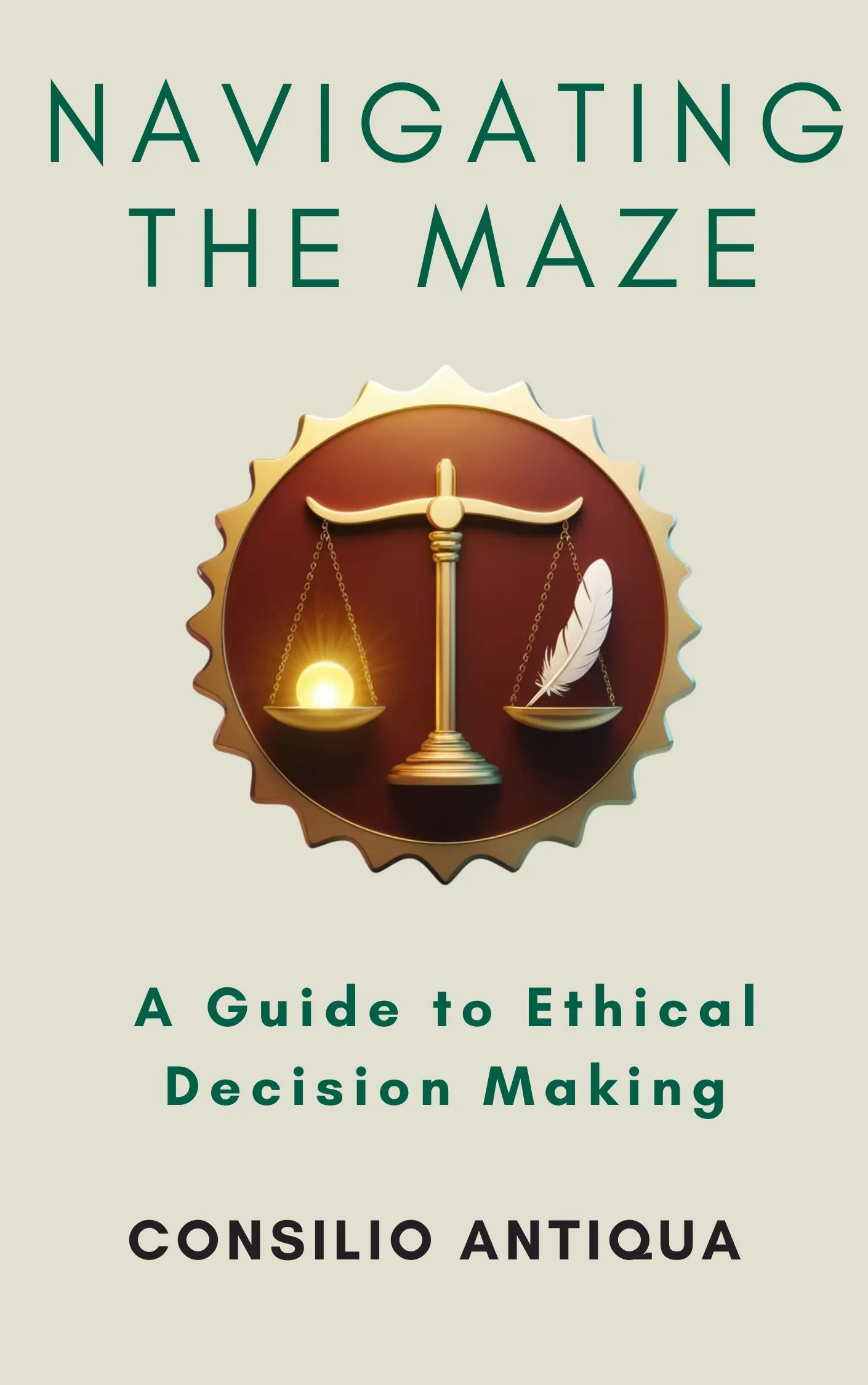
Navigating the Maze | 5: Ethics in Business: Corporate Responsibility and Governance
5: Ethics in Business: Corporate Responsibility and Governance
Doing Good While Doing Business: Ethics, Responsibility, and Building a Better Way
Remember the uproar when that famous clothing company was busted for using sweatshops? Or when that tech giant got caught selling user data without consent? These weren't just isolated incidents – they sparked a huge conversation about what we expect from the businesses we support. It made us ask: Shouldn't making money go hand-in-hand with doing the right thing?
It's easy to think that businesses only care about the bottom line. But the truth is, more and more, companies are realizing that ethical practices are key to not just surviving, but thriving. Think about it: would you trust a company known for treating its employees poorly or polluting the environment? Probably not.
Let's take a closer look at a company like Patagonia. They're not just selling outdoor gear; they're actively fighting for environmental protection. They donate a percentage of their sales to environmental groups, use recycled materials, and even encourage customers to repair their clothes instead of buying new ones. This commitment to doing good has earned them a loyal following and a reputation as a leader in ethical business.
So, how do companies build this kind of ethical foundation? It starts with something called Corporate Social Responsibility, or CSR. It's like a built-in compass that guides a company's decisions, making sure they're not just thinking about profits, but also about their impact on people and the planet.
Think about a company like TOMS Shoes. They built their entire business model around the idea of giving back. For every pair of shoes they sell, they donate a pair to a child in need. This "one-for-one" model has resonated with customers who want to support businesses that align with their values.
But CSR isn't just about philanthropy. It's also about how a company treats its employees. Starbucks, for example, offers healthcare benefits even to part-time workers and invests heavily in employee training and development. This creates a happier, more engaged workforce, which ultimately benefits the company as a whole.
Now, let's talk about ethical governance. It's like having a clear roadmap for ethical behavior within a company. It's about setting rules, promoting transparency, and making sure everyone's accountable.
Take Johnson & Johnson, for instance. They have a famous "Credo" that outlines their responsibilities to customers, employees, communities, and shareholders. This Credo has guided their decision-making for decades, even in the face of tough challenges.
Another great example is Unilever, a massive consumer goods company. They've committed to a "Sustainable Living Plan" that aims to reduce their environmental footprint while improving the lives of people around the world. This plan isn't just a PR stunt; it's embedded in their business strategy and operations.
Of course, even with the best intentions, ethical dilemmas pop up in business all the time. Imagine a small, local bakery that's struggling to compete with a big chain store. They might be tempted to cut corners on ingredient quality or worker pay to stay afloat. Or picture a pharmaceutical company that's developed a life-saving drug but needs to price it affordably while still making a profit. These are tough situations with no easy answers.
So, how do we navigate these murky waters? It starts with recognizing that ethical dilemmas are rarely black and white. We need to gather all the facts, consider different perspectives, and weigh the potential consequences of our actions.
There are some helpful frameworks we can use, like the PLUS model. It encourages us to consider whether a decision is Policies (does it align with company policies?), Legal (is it legal?), Universal (does it apply to everyone fairly?), and Self (does it feel right in my gut?).
Another approach is the ethical decision-making tree. It guides us through a series of questions to help us identify the ethical issues at stake, brainstorm possible solutions, and evaluate the potential outcomes of each option.
Ultimately, navigating ethical dilemmas requires courage, empathy, and a willingness to learn and grow. It's about asking tough questions, seeking guidance from others, and making choices that align with our values.
Think about a time when you faced an ethical dilemma, maybe at work or in your personal life. How did you approach it? What factors did you consider? What were the consequences of your decision?
Let's be honest, building a more ethical business world isn't just about big corporations and fancy frameworks. It's about each of us making conscious choices in our everyday lives. It's about supporting businesses that align with our values, speaking up when we see something wrong, and holding ourselves and others accountable.
It's a journey, not a sprint, and there will be bumps along the way. But if we keep striving to do better, we can create a business world that's not just profitable, but also just, equitable, and sustainable. And that's something worth fighting for.
